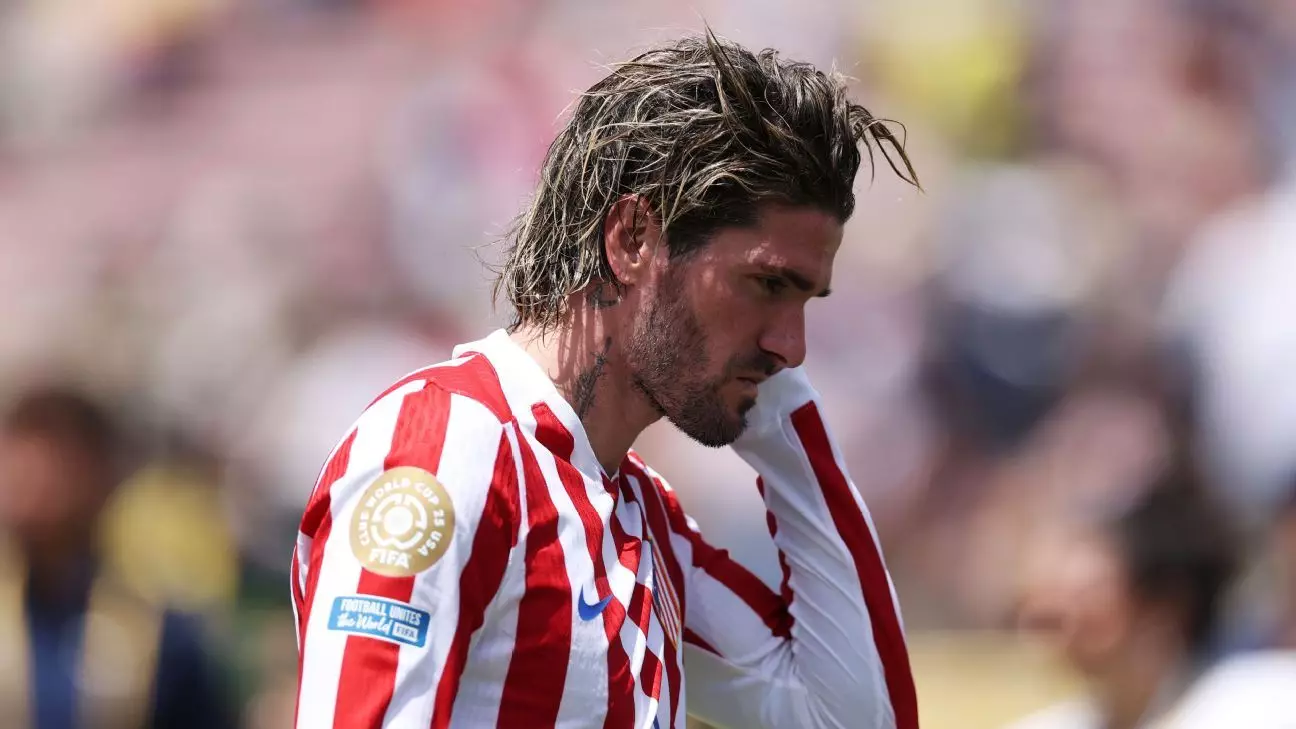Inter Miami’s recent approach to acquiring Argentinians like Rodrigo De Paul signifies a clear departure from traditional MLS aspirations. The club’s leadership, led by co-owner Jorge Mas, is no longer content with merely competing within the North American continent. Instead, they harbor ambitions of transforming into a powerhouse capable of rivaling South and Central American clubs, as well as the top teams across CONCACAF. This vision underscores a shift in MLS’s perception globally — from a league seen as an expansive, regional tournament to a serious contender for global star power. Miami’s willingness to pursue titanic talents across the Atlantic and South America reveals an audacious strategy that prioritizes high-profile signings as a way to elevate the league’s stature, appeal, and competitiveness.
Such moves embody the philosophy that a single star isn’t enough. Rather, assembling multiple elite players could catapult MLS clubs into the global arena of serious contenders. This vision hinges not just on signing famous names, but on creating a competitive environment where excellence is continuous and sustained. Inter Miami’s intent isn’t simply about winning; it’s about rewriting perceptions, making a statement that MLS clubs are capable of assembling lines of talent comparable to the best in Europe or South America.
Negotiation Chess: The Complex Dance of Signing High-Profile Transfers
Securing Rodrigo De Paul embodies the intricate, high-stakes game of modern football transfers. It’s not simply about the expense; it’s about strategic moves and negotiations that reflect broader ambitions. The fact that Jorge Mas personally traveled to Madrid underscores the importance of this deal. However, the negotiations are complicated by contractual realities, existing squad rosters, and the financial constraints of MLS.
Inter Miami faces the challenge of clearing roster spots designated for designated players — the league’s way of controlling salary expenditure while enabling clubs to sign marquee players. Messi and Busquets are at the end of their contracts, but Messi’s potential renewal has yet to be finalized, adding another layer of uncertainty. Meanwhile, Jordi Alba recently extended his stay through 2027, complicating the roster space situation further. The key dynamism here rests in negotiations not only for a transfer fee but also for contract extensions and roster flexibility.
Importantly, this deal isn’t just a matter of dollars — it embodies a vision of permanence and influence. De Paul isn’t just a player; he’s potentially a keystone in Miami’s effort to construct a squad that commands respect worldwide. The strategic importance of assembling a team of stars cannot be overstated. It’s a gamble with long-term payoff — if De Paul joins, he could anchor Miami’s midfield and elevate their competitive standards substantially.
Atlético Madrid’s Dilemma: Balancing Business with Loyalty
De Paul’s potential departure from Atlético Madrid highlights a broader dilemma faced by global clubs: balancing immediate transfer windfalls with squad stability and long-term success. The club’s reluctance to lose De Paul without a fee demonstrates the value they see in his contribution, especially given the club’s desire to avoid losing him as a free agent. Coach Diego Simeone’s stance reveals how vital De Paul remains to Atlético’s tactical setup, emphasizing that loyalty and tactical importance may override short-term financial gains.
This situation reveals how modern clubs grapple with maintaining stability amid the lure of lucrative transfers. Atlético’s potential need to find a suitable replacement — perhaps Javi Guerra or another midfield talent — shows how consequential it is to replace and replicate the qualities of a key player like De Paul. This revolving door of talent also reflects the shifting nature of club loyalty and the accelerating speed at which team dynamics can change in pursuit of financial or strategic gain.
The long-term impact of De Paul’s departure could ripple beyond this season, affecting Atlético’s locker room chemistry and tactical cohesion, especially given his close ties with Argentine compatriots like Julián Álvarez. Such relationships play an often underappreciated role in team chemistry, and losing a charismatic leader could unsettle a well-oiled machine.
The Broader Implication: A Global Talent Race and the Power Shift in Soccer
Inter Miami’s pursuit of De Paul, and the broader context of Trans-Atlantic negotiations, underscores an unmistakable trend in modern football: the globalization of star power. Clubs from the world’s premier leagues are increasingly viewed as markets for talent, with the MLS eager to position itself as a competitive destination for top-tier players.
The strategic intent of Miami isn’t just about immediate results — it’s about positioning the league as a hub for elite talent, bringing international attention and elevating the sport’s profile in North America and beyond. By targeting players like De Paul and considering the involvement of superstars like Messi, Miami is making a bold statement: the future of soccer isn’t confined to Europe or South America; it’s expanding, and the MLS wants to be at the forefront.
Ultimately, this domino effect portends a new chapter in soccer’s evolution, where the boundaries of talent, influence, and competition are constantly being redrawn. Whether or not Miami succeeds in cementing De Paul’s transfer, their relentless pursuit illustrates an unwavering belief in soccer’s potential to be a truly global, competitive, and lucrative sport.

